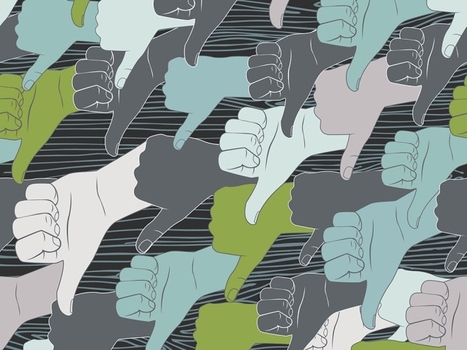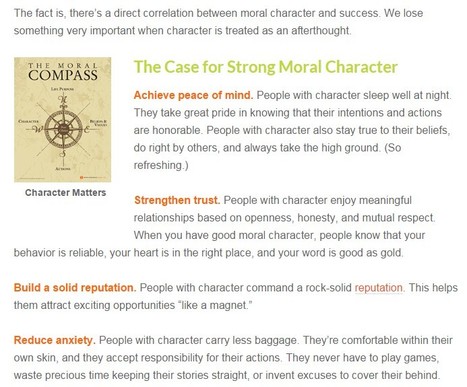
Envy - Wikipedia
Aristotle (in Rhetoric) defined envy (φθόνος phthonos) "as the pain caused by the good fortune of others", while Kant defined it as "a reluctance to see our own well-being overshadowed by another's because the standard we use to see how well off we are is not the intrinsic worth of our own well-being but how it compares with that of others" (in Metaphysics of Morals).
However, psychologists have recently suggested that there may be two types of envy: malicious envy and benign envy—malicious envy being proposed as a sick force that ruins a person and his/her mind and causes the envious person to blindly want the "hero" to suffer; on the other hand, benign envy being proposed as a type of positive motivational force that causes the person to aspire to be as good as the "hero"-but only if benign envy is used in a right way.[4][5]
Learn more / En savoir plus / Mehr erfahren:
http://www.scoop.it/t/21st-century-learning-and-teaching/?tag=Moral
http://www.scoop.it/t/21st-century-learning-and-teaching/?tag=Moral+Compass
http://www.scoop.it/t/21st-century-learning-and-teaching/?tag=Character
http://www.scoop.it/t/upto12-learning/?tag=Character+Building
http://www.scoop.it/t/21st-century-learning-and-teaching/?tag=Values



 Your new post is loading...
Your new post is loading...











However, psychologists have recently suggested that there may be two types of envy: malicious envy and benign envy—malicious envy being proposed as a sick force that ruins a person and his/her mind and causes the envious person to blindly want the "hero" to suffer; on the other hand, benign envy being proposed as a type of positive motivational force that causes the person to aspire to be as good as the "hero"-but only if benign envy is used in a right way.[4][5]
Learn more / En savoir plus / Mehr erfahren:
http://www.scoop.it/t/21st-century-learning-and-teaching/?tag=Moral
http://www.scoop.it/t/21st-century-learning-and-teaching/?tag=Moral+Compass
http://www.scoop.it/t/21st-century-learning-and-teaching/?tag=Character
http://www.scoop.it/t/upto12-learning/?tag=Character+Building
http://www.scoop.it/t/21st-century-learning-and-teaching/?tag=Values